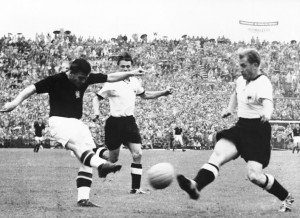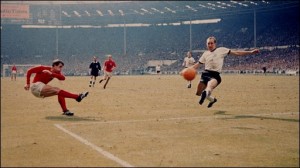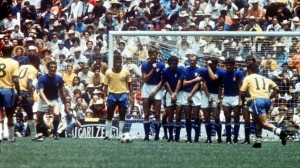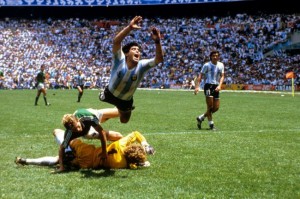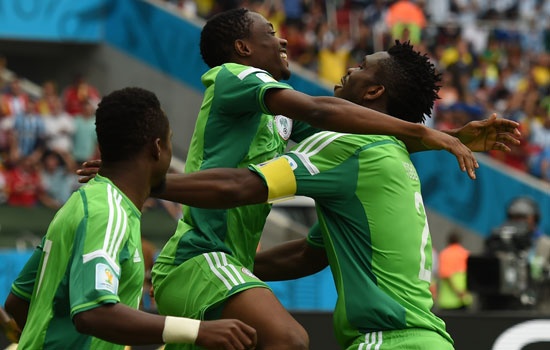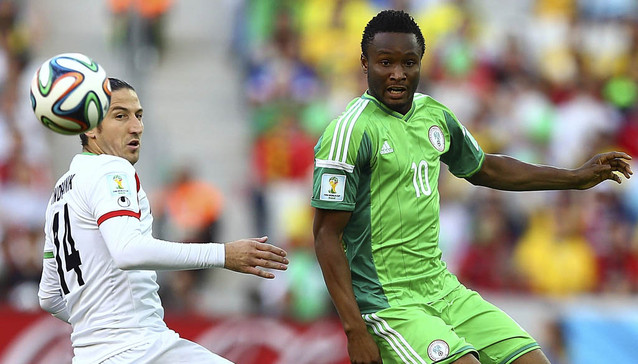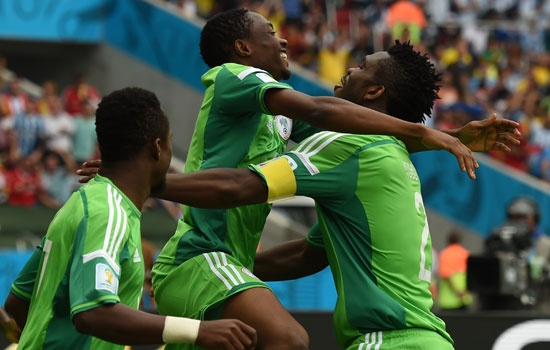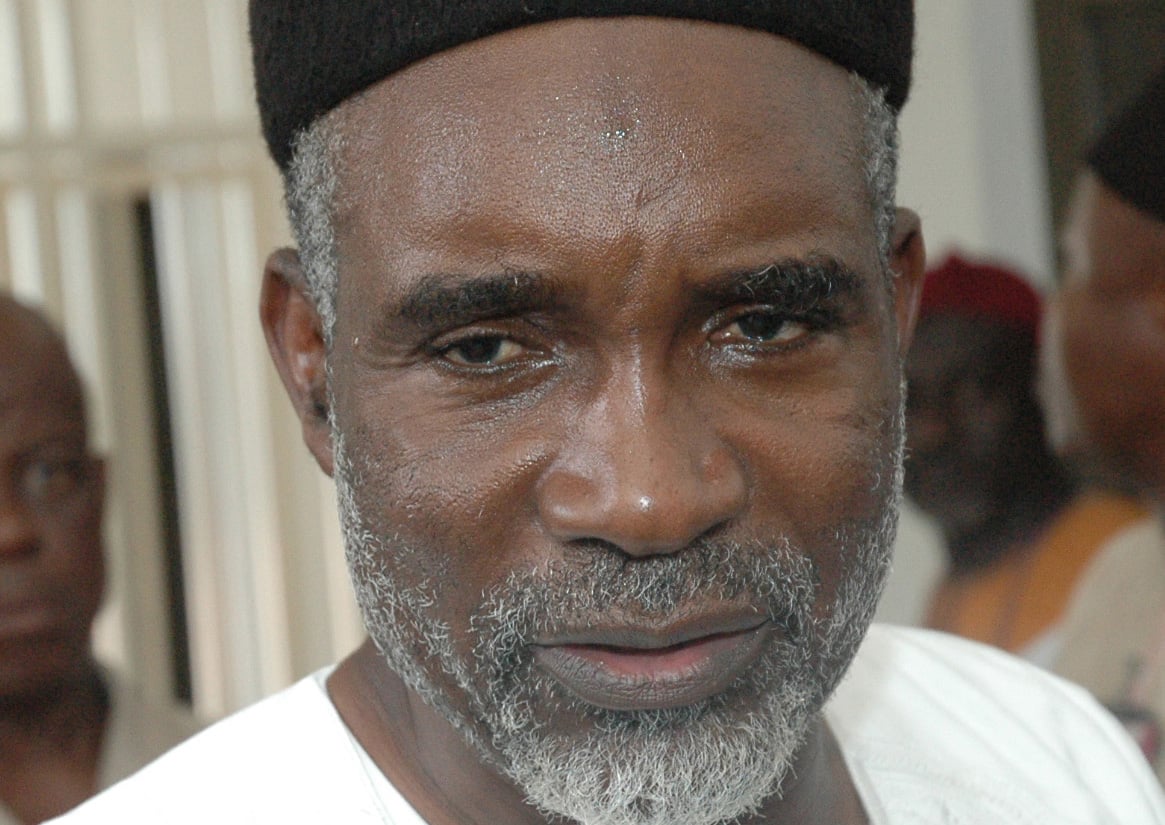The Netherlands wanted to top their group at all costs in order to avoid a ‘strong’ Brazil in the next round.
Their coach, Louis van Gaal, fielded a strong team against Chile in a game that was to decide the group’s winner. Holland won 2-0 and will now meet a ‘weak’ Mexico in the second round.
So, how important is it to top your group at the World Cup so as to have a knockout match with a supposedly weak team who came second in another group?
TheCable tries to find out.
Advertisement
1930 World Cup
Only group winners (Argentina, United States, Uruguay, and Yugoslavia) played the knockout games.
1934 World Cup
Advertisement
The group stage used in the first World Cup was discarded in favour of a straight knockout tournament.
1938 World Cup
The knockout format from 1934 was retained.
1950 World Cup
Advertisement
Only group winners (Brazil, Spain, Sweden, and Uruguay) advanced to the final group stage.
In this edition, the group winners (Brazil, Hungary, Uruguay, and England) didn’t get paired with the runners-up for the next stage but with a fellow group winner! Brazil lost to Hungary 4-2 while Uruguay beat England by the same result.
Did a group winner end up winning the World Cup?
Advertisement
No. West Germany, who had earlier lost 8-3 to Hungary in the group stage, got their revenge in the final with a 3-2 win.
1958 World Cup
Advertisement
Group winners who scaled Round 8 hurdle
All group winners – West Germany, Sweden, France, and Brazil – triumphed.
Advertisement
Did a group winner end up winning the World Cup?
That’s an obvious yes! Brazil won their first World Cup.
Advertisement
1962 World Cup
Group winner who scaled Round 8 hurdle
Brazil
Group winners who lost to the ‘weak’ team
Soviet Union (Chile), West Germany (Yugoslavia), Hungary (Czechoslovakia)
Did a group winner end up winning the World Cup?
Yes. Brazil retained their trophy.
Group winners who scaled Round 8 hurdle
All group winners – England, Portugal, West Germany, and Soviet Union – defeated the ‘weaker’ runners-up.
Did a group winner end up winning the World Cup?
Another obvious yes! Host England won their first World Cup.
Group winners who scaled Round 8 hurdle
Brazil, Italy, West Germany
Group winner who lost to the ‘weak’ team
Soviet Union (Uruguay)
Did a group winner end up winning the World Cup?
Yes. Brilliant Brazil in an emphatic 4-1 win against Italy.
1974 World Cup
In a change from the format used in the previous three competitions, the second round consisted of another group stage. The eight remaining teams were divided into two groups of four. The winners of each group played each other in the final.
Did a group winner end up winning the World Cup?
No. Although West Germany won their final group stage and defeated the Netherlands, the winner of the second final group stage in the World Cup final, West Germany, were second to bitter rivals East Germany in the first group stage. Confusing, right?
1978 World Cup
The format of the competition stayed the same as in 1974.
Did a group winner end up winning the World Cup?
No; same ‘confusion’ of four years earlier. Though Argentina won their final group stage and defeated the Netherlands (again), the winner of the second final group stage in the World Cup final, the hosts, were second to Italy in the first group stage.
A unique format was used in this edition. The first round was a round-robin group stage containing six groups of four teams each. The top two teams in each group advanced. In the second round, the twelve remaining teams were split into four groups of three teams each, with the winner of each group progressing to the knockout semi-final stage. Hmmm.
Did a group winner end up winning the World Cup?
No and yes, like in the previous two tournaments. Italy who defeated West Germany 3-1 in the final, came second in the first group stage won by Poland. They topped their next group ahead of Brazil and Argentina.
The format of the competition changed from 1982, with the second round being played on a knockout basis rather than groups.
Group winners who scaled Round 16 hurdle
Argentina, Mexico, Brazil
Group winners who lost to the ‘weak’ team
Soviet Union (Belgium), Denmark (Spain), Morocco (West Germany)
Did a group winner end up winning the World Cup?
Yes. Argentina won their first World Cup outside their country.
Group winners who scaled Round 16 hurdle
West Germany, Czechoslovakia, England, Cameroon, Italy, Republic of Ireland
Group winners who lost to the ‘weak’ team
Spain (Yugoslavia), Brazil (Argentina)
Did a group winner end up winning the World Cup?
Yes. West Germany won a drab final 1-0 against Argentina who wobbled and fumbled to the last match of the competition.
1994 World Cup
Group winners who scaled Round 16 hurdle
Romania, Netherlands, Brazil, Germany, Spain
Group winners who lost to the ‘weak’ team
Saudi Arabia (Sweden), Mexico (Bulgaria), Nigeria (Italy)
Did a group winner end up winning the World Cup?
Yes. Brazil won their first World Cup in 24 years!
1998 World Cup
Group winners who scaled Round 16 hurdle
Brazil, Netherlands, Argentina, Italy, France, Germany
Group winners who lost to the ‘weak’ team
Nigeria (Denmark), Romania (Croatia)
Did a group winner end up winning the World Cup?
Yes. France made the most of being the host to win their first World Cup.
Group winners who scaled Round 16 hurdle
Germany, Spain, South Korea, Brazil
Group winners who lost to the ‘weak’ team
Mexico (United States), Denmark (England), Sweden (Senegal), Japan (Turkey)
Did a group winner end up winning the World Cup?
Yes. Brazil, inspired by Ronaldo, won their fifth World Cup.
2006 World Cup
Group winners who scaled Round 16 hurdle
Germany, Argentina, Italy, England, Portugal, Brazil
Group winners who lost to the ‘weak’ team
Switzerland (Ukraine), Spain (France)
Did a group winner end up winning the World Cup?
Yes. Italy defeated champions France via penalty shootout.
Group winners who scaled Round 16 hurdle
Uruguay, Netherlands, Brazil, Argentina, Germany, Paraguay, Spain
Group winners who lost to the ‘weak’ team
United States (Ghana)
Did a group winner end up winning the World Cup?
Yes. Spain won their first World Cup.
Findings
1) The first four World Cups – 1930, 1934, 1938, and 1950 – had fewer teams and a simple format so the results are not applicable in this exercise.
Also, the formats used in 1974, 1978, and 1982 World Cups were quite clumsy and wouldn’t add substance to this research.
2) So, in the 12 World Cups under review, of the 74 games played between winners and runners-up in the second round 51 were won by teams who topped their group (representing 68.9 per cent) while 23 were won by teams who came second in their group (representing 31.1 per cent).
3) When there was a change in the World Cup format, like in 1954 (where group winners played one another instead of runners-up in the second round), 1974, 1978, and 1982, teams that came second in the first group stages always ended up winning the World Cup.
There’s no new format in this World Cup.
4) In the last World Cup in South Africa, of the eight games played in the round-of-16, seven were won by teams who topped their group.
5) In 15 World Cups, excluding the first four, teams who won their group ended up as champions 11 times (representing 73 per cent) while teams who came second in the first round of matches won the World Cup four times (representing 27 per cent).
Conclusion
So, it is bad news for Nigeria and Stephen Keshi and the other teams who couldn’t win their groups. Van Gaal et al should get the choicest brand of champagne. And pop it will go!

